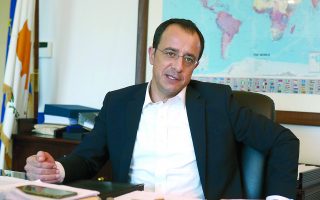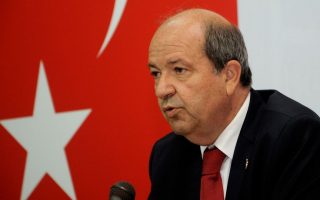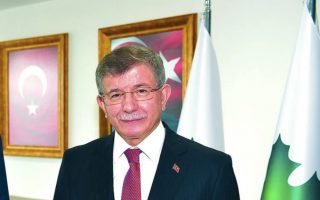‘Erdogan will hang on by hook or crook,’ analyst tells Kathimerini
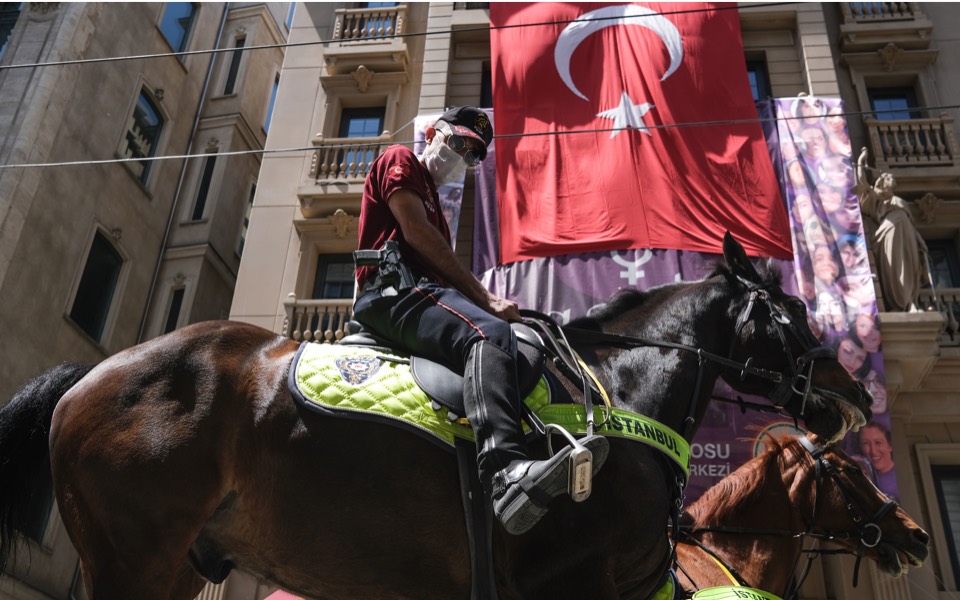
Economic recession, distorted decision-making in the palace, rising social discontent, backlash from within the ranks of the military and strained ties with the West are weakening Turkish President Recep Tayyip Erdogan’s continued hold on power ahead of presidential elections in 2023, Turkish-American political analyst Soner Cagaptay tells Kathimerini.
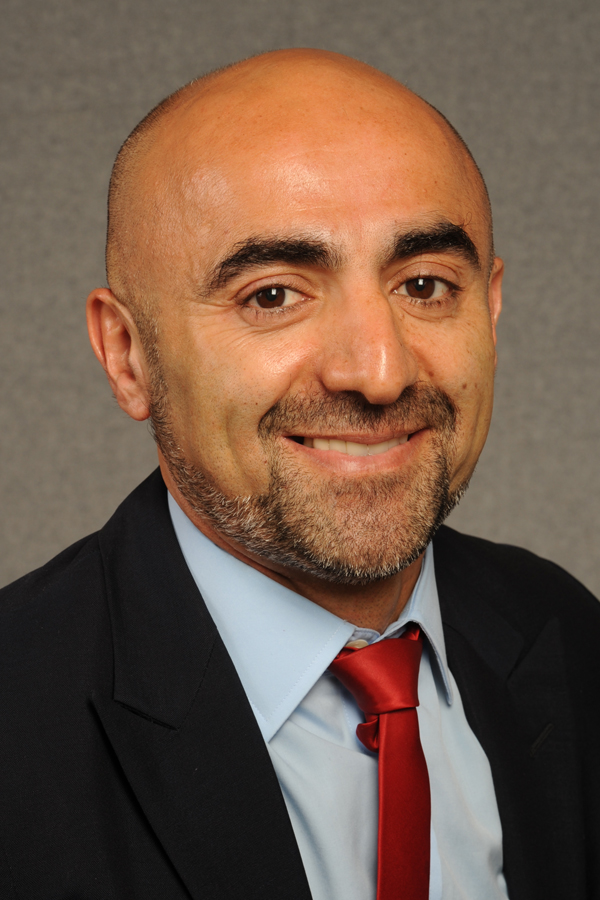 The director of the Turkish Research Program at the Washington Institute for Near East Policy says that he expects Erdogan to try to “hang on by hook or by crook,” while not ruling out continued foreign interventions, to “distract from domestic issues at home by rallying popular nationalist sentiment.”
The director of the Turkish Research Program at the Washington Institute for Near East Policy says that he expects Erdogan to try to “hang on by hook or by crook,” while not ruling out continued foreign interventions, to “distract from domestic issues at home by rallying popular nationalist sentiment.”
He also says that he expects Erdogan to try play US President Joe Biden and Vladimir Putin off each other, warning, however, that the Russian president’s “warmth never comes for free.”
You have suggested that Turkish President Recep Tayyip Erdogan will double down on his current religious nationalist agenda rather than embracing a more pluralistic one. But you have also pointed out that young voters aged 18-42 who have grown up in the Erdogan era are showing an overwhelming commitment to liberal democratic values and are about to vote in mass numbers against him. What could Erdogan pull out of his sleeve to improve his odds on the road to 2023?
The Covid-19 pandemic and flagging economy have gravely damaged Turkish President Recep Tayyip Erdogan’s leadership reputation. The past years show that there are limitations as to what he is able to pull out of his sleeve to improve his odds in the next election, such as the devastating blow he felt when his party’s candidate lost (twice) in the 2019 Istanbul mayoral elections, including in a contested rerun. Continued foreign interventions may be likely, as he tries to distract from domestic issues at home by rallying popular nationalist sentiment as he has previously done in Azerbaijan, Libya and Syria. With decision-making in his palace distorted, isolating himself with ever smaller groups of advisers, the chance that he will be able to formulate cohesive strategies to improve his chances at the ballot box against the backdrop of establishment fatigue grows increasingly unlikely. However, I believe Erdogan will hang on by hook or crook, with a great cost to Turkey’s civil society, institutions and citizens.
Inspired by the title of your April 16 lecture, I ask you, can Erdogan charm US President Joe Biden without alienating Russia’s Vladimir Putin and without abandoning much of his aspiration of turning Turkey into a regional power?
Ultimately, I believe Erdogan will play Biden, but stick to Putin. Historically, Turkey has played the role of the losing party to a string of imperial wars between the Ottoman and Russian empires, contributing to modern Turkey developing much wariness toward its northern neighbor, bringing it into the sphere of American influence and protection throughout the Cold War.
However, things are different in the Erdogan era. The failed Turkish coup plot in July 2016 hardened Erdogan’s attitude toward his democratic opposition – prompting him to use his newly acquired emergency powers to conduct a broader crackdown on these groups – but the event softened Russian president Vladimir Putin’s approach toward Turkey.
Putin has used the coup attempt to win Erdogan’s heart and peel Ankara away from Washington. The Russian president was the first leader to reach out to Erdogan after the failed coup, sweetening the gesture with an invitation to visit St Petersburg the next month. What ensued was a regal welcome at the Konstantinovsky Palace. Putin thus signaled that the czar and the sultan could get along, and that the Ankara-Moscow proxy war in Syria could end – and along with it a persistent headache for Erdogan.
But Putin’s warmth never comes for free. At their August meeting or soon after, the Russian leader offered to sell Erdogan a Russian-made S-400 missile defense system, knowing that this sale would create a permanent fissure in US-Turkish ties. This was the price Erdogan had to pay – and still does – for Putin’s “friendliness” and a series of deals with Ankara since 2016 in Syria, Libya and the South Caucasus. Since that post-coup encounter, though, Erdogan has genuinely valued Putin as his protector, joining other threatened world leaders – from Bashar al-Assad in Damascus to Nicolas Maduro in Caracas – in their regard for the Russian president.
While Turkey’s balancing act has tipped noticeably toward Russia, Erdogan knows he cannot abandon the good graces of the US entirely. There are concrete areas of cooperation you can expect the US and Turkey to focus on, such as Ukraine and Crimea. Still, given recent dynamics, Biden will push hard on human rights issues and the S-400s, and Erdogan will continue to defer to Putin and seek out regional power opportunities to prove Turkey is an independent actor and not bound to Western pressure.
Are Erdogan and Turkey vulnerable depending on how the Halkbank scandal will be handled by the US and more importantly on whether the US will double down in its efforts to support the PKK’s Syrian offshoot the YPG in Syria, especially now that Brett McGurk has been sent back to the region again?
Potential US court fines against Turkey’s publicly owned Halkbank for violating Iran sanctions could potentially put even members of Erdogan’s family at risk and could be so large (potentially several billion dollars) as to shake the Turkish financial system. When he served as US vice president, Biden was instrumental in telling Erdogan that the US relationship with the YPG was temporary and tactical, aimed at defeating the Islamic State. The Turkish perception that Washington has since reneged on the Biden commitment helps explain eroded confidence within the Turkish bureaucracy, including traditionally powerful institutions such as the Ministry of Foreign Affairs, Turkish Armed Forces and National Intelligence Organization. While the rank and file of these institutions do not necessarily align with Erdogan on all matters, they completely share his frustration toward the United States regarding the YPG issue. However, there are tactical areas where the US and Turkey can find cooperation on the YPG issue: such as having the YPG move further back from the Turkish border to diminish its perceived threat to Ankara or purge Turkish Kurds in its cadres.
Is the recent letter by retired admirals expressing concern over the “Islamization” of the army an act against President Erdogan with serious repercussions, or do we tend to interpret such moves using terms that belong in the past?
Erdogan and the military have had a tumultuous relationship since his rise to power. Starting in the 2000s he has defanged the military by eliminating large components of its top brass officials through arrests over fabricated links to coup plots – collectively known as the Ergenekon case, preemptively decreasing the chances of a military takeover against him.
While Turkey has a history of military coups, the 2021 admirals’ letter – on which there is still an ongoing investigation – has allowed Erdogan to play upon familiar victimization rhetoric, calling the letter “reminiscent of coup times” in a statement released by the president’s office. The act shows the deep societal polarization felt toward Erdogan in Turkish society. Significantly, it allows Erdogan to continue playing into rhetoric that connects past historical coups to continued present-day attempts and also paves the way for installing crackdowns on either real or imagined opponents at home.
Is the Turkish economy in a precarious position or is it really too big to fail?
In 2018, the Turkish economy entered recession. This is the main reason Erdogan’s party lost Istanbul, Ankara and other key Turkish cities in the 2019 mayoral races, marking a first and enduring defeat for him at the ballot box. Erdogan gained popular support initially because he delivered quick and strong economic growth. This helped him consolidate power and take over the courts by passing an amendment to Turkey’s constitution in 2010. But now the Turkish economy is in recession. The economy exited recession in 2019 but has failed to show signs of robust growth in 2020 due to the impact of the coronavirus pandemic and economic mismanagement. With unemployment nearing 20 percent and inflation rising to 14 percent, the future would appear to be bleak for both the Turkish president and the country.
Turkish drone technology has been noted even by Francis Fukuyama as a game changer. Turkish commentators have suggested that this technology has helped Turkey win all foreign interventions and it is the magic bullet needed for establishing Turkey as a regional power. Do you agree?
I can say that it is remarkable. Turkey doesn’t refrain from using its hard power in the region. For instance, Turkey’s recent drone campaign targeting the PKK leadership and camps inside mountainous northern Iraq has had considerable success, and the group might be willing to return to the negotiating table. Also, Turkey has built stronger ties with Ukraine since 2014, and Ankara now provides Kyiv with drones for use in its low-intensity war against Russian forces currently occupying eastern Ukraine.
The military has been regarded as the guardian of Turkey’s democracy since 1923. It also showed assertiveness toward Greece and others in the last century, particularly from 1974 onward. Erdogan was the first to consistently pursue a policy of peace in the 2000s until 2016, presumably because he could not control the military and preferred to keep it at bay. This changed abruptly after 2016, presumably because he grabbed control of the military for the first time. As he urgently needed to be seen as more patriotic than the Kemalists, he drew heavily from history and the glorious Islamist Ottoman past. Is this view correct?
Not only the Turkish military, but also the structure of the young Turkish Republic founded by Mustafa Kemal Ataturk was the self-declared guardian of the democracy in Turkey. Turkey, established as a secular republic at the end of World War I, long managed to hold sharia out of the official sphere, making it an outlier among Muslim-majority countries.
However, the memory of the Ottoman Empire is still very fresh, and Erdogan has reminded Turkey’s citizens of this memory. This has been embraced even by parts of his opposition. While the secular constitutional system remains, polls and recent developments in Turkey together demonstrate a shift. For instance, some Turkish officials have broken with decades of precedent in what is still, at least nominally, a secular republic in recent years: They have begun describing the country’s military deployment in Syria as “jihad.” During the first two days of the operation, which began on January 20, the government’s Directorate of Religious Affairs ordered all of Turkey’s nearly 90,000 mosques to broadcast the “Al-Fath” verse from the Koran – “the prayer of conquest” – through the loudspeakers on their minarets. Mainstreaming religious dogma, which sanctions violence against those who “offend Islam,” is a crucial step in draping the gauze membrane of sharia over society, while Turkey stays nominally secular. Sadly, Turkey seems to be slowly moving along that path.
Are we witnessing a historic merger of politics and military, Islam and democracy in Turkey that may outlast Erdogan? Is Turkey’s gradual transformation into a regional power irreversible and independent of President Erdogan’s future as the constantly strengthening military – Islamist or not – has come to define present and future of Turkey more than ever?
Having grown up in secular Turkey and faced social exclusion at a young age, Erdogan is motivated by deep-rooted animosity toward his predecessor’s ways. Now, having governed Turkey for 18 years, from 2003, Erdogan has at last amassed powers sufficient to undermine Ataturk’s legacy and, were they alive, make those original Kemalists question their absolute confidence in their system.
Erdogan has dismantled Ataturk’s secularism in just over a decade and has done so with little mercy for his opponents. He has flooded the country’s political and education systems with rigidly conservative Islam and pivoted Turkey away from Europe and the West.
However, Erdogan has a problem: Whereas Ataturk came to power as a military general, Erdogan has a democratic mandate to govern. Furthermore, Turkey is split almost down the middle between pro- and anti-Erdogan camps.
Despite these facts, Erdogan desperately wants to change Turkey in his own image in the way that Ataturk did, and herein lies the crisis of modern Turkey: Half of the country embraces Erdogan’s brand of politics, but the other half vehemently opposes it.
So long as Turkey is genuinely democratic, Erdogan cannot complete his revolution. This has given birth to Erdogan’s dark, illiberal side: In order to push forward with his platform of revolutionary change in the face of a split society, he has subverted the country’s democracy. Exploiting his popularity, he has eroded democratic checks and balances, including the media and the courts. Instead of delivering more liberties for all, he has cracked down on his opponents and locked up dissidents, providing freedoms only for his conservative and Islamist base. Although he has won elections democratically, Erdogan has gradually become more autocratic, ensuring, now that he has won the election, that the political playing field is uneven in order to prevent power from escaping his hands.

